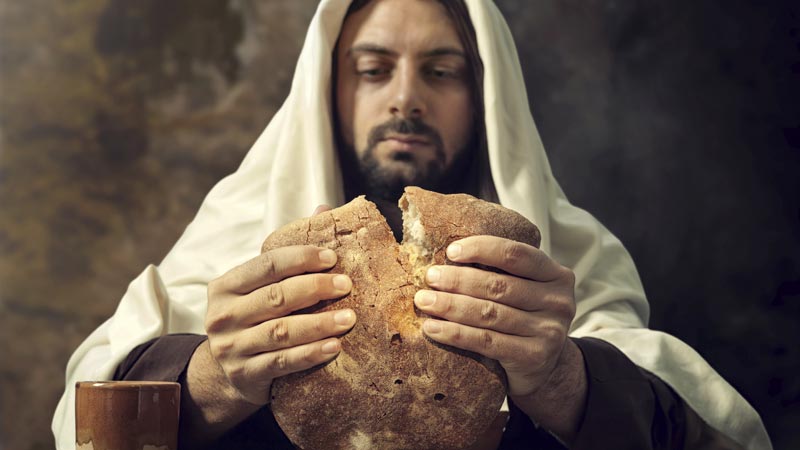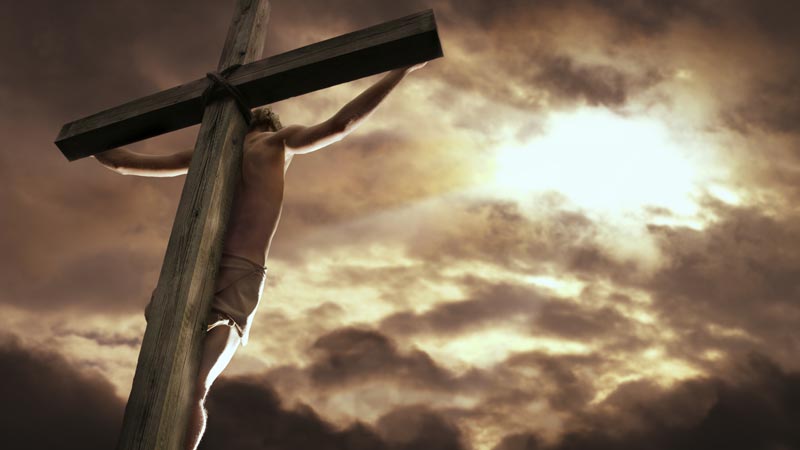In February, shops in Germany start selling chocolate eggs and bunnies. They are the first signs of the approach of Easter, a festival that is deeply rooted in Western culture. Easter is not on a specific date each year, but instead varies by several weeks from year to year. Easter Sunday is the first Sunday after the spring full moon, which in many years will be at the end of March or in early April.
For Christians, the time from the Friday before Easter Sunday, to the Monday after it, is one of the most important festivals of the whole year. In Germany, “Good Friday” and “Easter Monday” are public holidays on which shops stay closed. Those chocolate Easter eggs and bunnies are symbols of new life and resurrection from the dead. Nature is waking up at the same time, and spring is coming—an ideal time for a resurrection festival!
Traditions in Germany
Many Easter traditions have Christian roots, but their Christian meaning has been lost for many people over the years. For example, the 50 days before Easter were originally a time of fasting, in which Christians prepared themselves to celebrate Easter. This period is known as Lent. Some Christians go without food completely, others just stop eating certain foods or consuming specific things in order to concentrate on what is most important for them—Jesus Christ. And even though sweets, chocolates, candies, and other tempting things are still on shops’ shelves during Lent, fasting is still common before Easter.
Maundy Thursday and Good Friday

On the Thursday before Easter, which is known as Maundy Thursday, Christians remember the last meal Jesus ate with his friends. The Bible gives us detailed accounts of the Last Supper, as it is generally known. During the Last Supper, Jesus spoke about the suffering he was about to go through and then shared bread and wine with them. He did this so that his friends and, later, all Christians, could remember him in the bread and wine and have fellowship with him. That same evening, Jesus was arrested.

Jesus was interrogated, tortured and then sentenced to death. Christians remember Jesus’ horrific death on the cross, also known as the crucifixion, on what is called “Good Friday”. Guilt and sin separate all of us from God. That’s what the Bible, God’s Word, teaches. God is good, holy, and perfect. That’s why no one can stand before him – each person has sinned at some time in his or her life.
Sin leads to death and to an eternal separation from God. We humans cannot change this situation by our own power. Even the ancient story of Abraham’s son pointed ahead to the coming Saviour. Just as Abraham’s son was about to die, God sent a sacrifice to be killed in his place—so that the son could live.
The Bible makes it clear that the blood of animals cannot save us from God’s judgement and punishment. A pure and perfect sacrifice is needed. But the only completely sinless and pure being is God himself. So only God himself can remove our sin and save us. Many passages in the Bible announced the coming of a saviour.
This saviour, known as the messiah, is more than just a human being. God himself came into the world in the form of a messiah. 750 years before Jesus was born, the prophet Isaiah wrote that the messiah would sacrifice himself for our guilt like a sacrificial lamb. When the prophet John the Baptist first saw Jesus, he shouted: “This is God’s sacrificial lamb who will take away the sins of the world!”
Jesus clears the way to God

Through his death on the cross, Jesus took away the sins of those who believe in him; through his resurrection, he cleared the way to God the Father. The Bible reports that the curtain in the Temple in Jerusalem was torn in two when Jesus died. This represents the fact that, because of Jesus Christ, a person can now live in a personal relationship with God the Father. In Jesus, we are sure to be saved and one day live forever with God.
The events of Good Friday were no accident, nor were they a victory for the forces of evil. God had planned them a long time in advance, as you can see when you read Psalm 22 of the prophet David, Chapter 53 of the prophet Isaiah, or in Chapter 10 of the Gospel of John.
You might have heard that Judas was crucified, and not Jesus. That is not proven by any historical record, and it contradicts the statements of Jesus, who announced and predicted his death several times. And if you’ve heard that Christians worship the cross, that’s not true at all. Christians worship and pray to God and God alone.
Easter Sunday – the resurrection of the body

On Easter Sunday, Christians remember that Jesus rose from the dead. Christians believe that Jesus didn’t remain dead, but rather that he defeated death, just as he had predicted many times. One example of that is in Chapter 12 of the Gospel of Matthew, in which Jesus compares his death and resurrection with Jonah, who spent three days in the stomach of a large fish.
Some people have doubt that Jesus really died and rose again from the dead. Yet, in the holy Bible, many of God’s prophets announced the messiah’s coming, suffering, death and resurrection. These prophecies were fulfilled in the life of Jesus. There are also many indications of these events outside of the Bible, for example in Roman historical records. In other words, Jesus’ death and resurrection are historically proven facts.
A scholar by the name of Josh McDowell once wanted to disprove Christianity. But as a result of his own research, he became a Christian himself and wrote the results of his research in a book entitled “Evidence That Demands a Verdict”.
The powerful people of Jesus’ time were themselves afraid that he might rise from the dead. That is why they had his grave officially sealed and guarded. Since they could no longer produce his dead body, Jesus must really have risen physically from the dead. If that was not the case, it would be pointless to believe in Jesus. Jesus was seen by many people after his resurrection, and he was even seen to eat some fish. Thomas, one of Jesus’ twelve closest friends (or disciples), didn’t believe at first that Jesus had risen from the dead. Only when he saw Jesus and could actually touch his wounds did he, too, believe.
On Easter Sunday. many Christians around the world testify to their firm belief in Jesus’ bodily resurrection, and their joy over it, with a special greeting and response: “The Lord has risen.”—“He has risen indeed.”
Additional information

If you’d like to learn more about Easter, perhaps you could visit a special exhibit called an “Easter Garden”. (see this website in German).
There you can see the story of Jesus from Maundy Thursday to Easter Sunday presented in a way that you can see and experience for yourself. And you are certainly welcome to visit a nearby church service on Easter Sunday!
Many churches organise Easter walks or have breakfast together. Guests are always welcome at these events, even if they aren’t Christians. So why not visit one of these services, perhaps with the person who told you about Deutschland-Begleiter.de?
You can discover where to find people in your area who will help you understand more about the Christian faith in the Contacts section of the website Deutschland-Begleiter.de.
One more thing: if you notice children searching for candy in a yard or home, that too is part of the celebration of Easter. Hiding sweets or little presents so that children can look for them is simply one of the nicest Easter traditions in Germany!